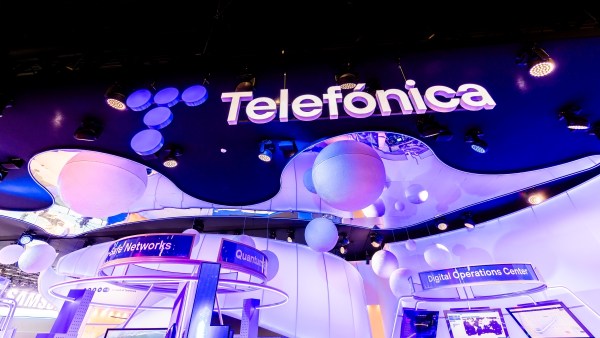A few days ago, Casa de América and Telefónica held a meeting entitled “For a digital and sustainable economy through artificial intelligence”, as part of a programme of cooperation between the two entities aimed at analysing the good use of artificial intelligence (AI) in different areas such as human rights, governance and ethics, as well as its application in different sectors.
In addition to a representative from Telefónica Tech, representatives from the Ibero-American Development Bank (IDB), the Development Bank for Latin America and the Caribbean (CAF) and the SERES Foundation took part in this round table, sharing their perspectives on the development of artificial intelligence in the region.
Addressing the regulation of Artificial Intelligence
Telefónica expressed the opportunities offered by GAI and the global concern created by Generative Artificial Intelligence, the will to regulate from all the global institutions that have already launched proposals (mainly G20, G7, OECD and UNESCO), as well as some countries or regions, mentioning the triple vision of Anu Bradford (China/USA/EU) in his recent book “Digital Empires”.
Most are concerned about potential risks, including ethical issues and always putting the person at the centre, protecting the most fundamental rights, and this is positive because it is not clear how AI will evolve and develop in the future. “The key is to find the balance between innovation and possible risks in the future.
In the Latin American region, several countries have already launched regulatory proposals that are still under discussion, such as Brazil, Chile and Costa Rica (the latter even requested the first draft of its regulation from ChatGpt), although the reality is that the region still lags behind other parts of the world and there are concerns that it will remain in a position of mere user rather than generator of this type of technology, according to data published by the Latin American AI Index.
Fostering public-private cooperation
As a responsible multinational company with a presence in the region, Telefónica was a pioneer in this area, adopting its ethical principles in 2018. Recently, further progress has been made and a specific governance model for the ethical development of AI-based products and services has been approved, which will allow us to extend our principles on AI to the entire value chain and disseminate them to our suppliers and collaborators wherever we operate.
We must also emphasise the importance of public-private cooperation in this area, so that any rules and regulations take into account market developments and the sensitivities of companies already involved in AI-related economic activities, so as not to harm innovation and competition, but with some principles for action.
Promoting ethics in Artificial Intelligence through Global Partnerships
Following the approval of the UNESCO Recommendation in 2021, Telefónica signed an institutional alliance with UNESCO and is a founding member of the UNESCO Business Advisory Board, along with Microsoft.
The aim of this alliance is to promote the principles of the Recommendation on a global scale, to help other companies develop services and products that take into account the ethical principles and the AI Recommendation approved by UNESCO in 2021, and to increase the number of companies that comply with these recommendations. Companies such as Salesforce, Lenovo, LG and Mastercard, among others, have recently signed up.
CAF, with which Telefónica has an institutional alliance, leads the UNESCO Advisory Council for countries in the region and is already providing technical assistance to UNESCO in seven countries in the region: Uruguay, Costa Rica, Dominican Republic, Brazil, Chile, Argentina and Mexico.
The IDB also has an initiative to discuss the ethical use of AI, called FairLAC. It is an alliance between the public and private sectors, civil society and academia to influence both public policy and the business ecosystem to promote the responsible and ethical use of AI.
The SERES Foundation works with business and civil society to implement ethical principles for AI. It has produced a report on the subject and contributed to the latest edition of TELOS on AI, published by the Fundación Telefónica.
Navigating a promising digital future
AI offers many opportunities for our economies and societies, but it must be developed in an ethical way, in line with our values and protecting our most fundamental rights. We are still at the beginning of this revolution, we do not have all the answers and there are many challenges, as this session has shown. That is why we need a multidisciplinary reflection from different fields, from the private and public sectors, in order to shape together a digital future that is both successful for everyone and respectful of our values, so that it can develop its full potential, based on openness, innovation and trust.
If you are interested in ethics and AI, you can access the previous session at Casa de América on AI governance here.














